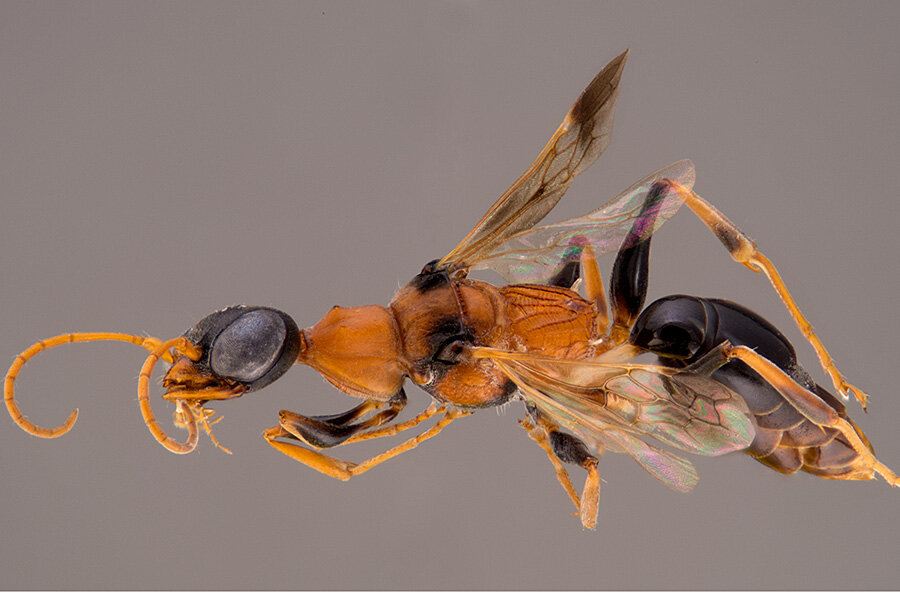Can Harry Potter save the wasps?
Loading...
Near Thailand's southern border with Myanmar lives a wasp that is an unlikely candidate for a conservationist billboard.
Discovered in 2012, this wasp hunts cockroaches, and does so in a horrifying way. It stings them in the abdomen with a venom that paralyzes the nerves, but not the muscles. It then drags the stunned cockroach into its nest where it devours it. Alive.
How do you get the masses to accept such a creature? By letting them choose its name.
The ant-like wasp Ampulex dementor joins Dracorex hogwartsia, a 66-million-year-old dinosaur, in the exclusive but growing club of species named for things in the "Harry Potter" universe. It got its name in January 2012, when visitors to the Museum für Naturkunde in Berlin were given the chance to vote on it.
Other candidates included Ampulex bicolor, after its distinctive black and red coloration; Ampulex mon, after one of the ethnic groups that live in the wasp's habitat; and Ampulex plagiator, because it copies, presumably without proper attribution, the behavior of ants.
In the end "Dementor" – a creation of author J.K. Rowling that permanently drains the souls of wizards and muggles alike – won the day.
"Based on our experiences, ‘public naming’ of newly discovered species is a suitable means of visitor participation in one of the core disciplines of a natural history museum, the discovery of biodiversity," said the authors of "The Soul-Sucking Wasp by Popular Acclaim – Museum Visitor Participation in Biodiversity Discovery and Taxonomy," published last year in the journal PLOS ONE.
With its complex rules and Latin verbiage, the process of naming new species can easily alienate the public from the scientific community, which raises a new research question: how do you make an audience care about a new animal that lacks the charisma of, say, a giant panda?
The results of the study – which constitute the only appearance of the term "soul-sucking" in the world's largest scientific journal – indicate that the voting public responded “very positively” to learning about the nomenclature process. Indeed, “[v]isitors were highly interested and during the event spent a significant amount of time asking for details and listening to explanations,” wrote the authors.
While those in the field of conservation might know that “Society should be concerned not only with the loss of biodiversity but also with its still unexplored richness,” as stated in the report, that might not sufficiently motivate the public to care about a new insect. However, it seems as though naming the species had a marked impact on the public that participated.








